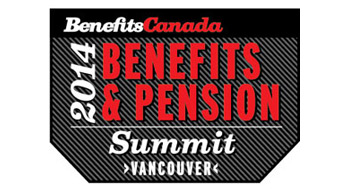
Sponsors of DC pension plans may well wonder if they are doing enough to avoid potential risks if the plan doesn’t provide the expected retirement outcome for individual members. How do sponsors protect themselves from future litigation?
At the 2014 Benefits & Pension Summit held in Vancouver, a panel of experts explored the topic of good governance and the de-risking of DC plans. Their best advice for plan sponsors: develop and follow a written policy, document every decision, provide training for pension committees, frequently review CAPSA guidelines, provide relevant communication to members and always consider the employees’ perspective.
“When it comes to de-risking over time, it is all about the member,” said Peter Nicholas, managing director and CEO, Anthony Hodges Consulting Ltd. “Often people on pension committees are making decisions based on their own perspective rather than from the perspective of the truck drivers, the guys on the shop floor or the miners. You must keep the outcome in mind and make sure governance is tight and everything is documented. The member is going to appreciate what you do because you thought of them and drove the outcome for them.”
Luis Ramirez, senior consultant, investment consulting, with Aon Hewitt, argued that de-risking a DC plan is more about the process put in place than the end result. “You don’t know where the markets are going to go or what members are going to do. It’s more about the journey.” He suggested that plan sponsors have a written policy in place—and follow it—and document every decision being made so the reasoning behind making investment changes or not making changes can be explained. “Pension committees must understand the consequences of decisions they make.”
With member engagement an ongoing issue for DC plan sponsors, communicating with plan members is a very real challenge. “We know what we want them to understand and do, but getting them to do it is pretty tough sometimes,” said Randi Topp, director of total compensation and pensions with Finning International Inc. A committee created to liaise with members can help ensure that communications are relevant. “Our committee is spread out geographically and, job-wise, to get feedback and see what members are feeling,” Topp explained. “The feedback goes up to the management committee and is used to decide what to do on the communications side.”
All the articles from both the Vancouver and Toronto events can be found on our special section: 2014 Benefits & Pension Summit Coverage.
